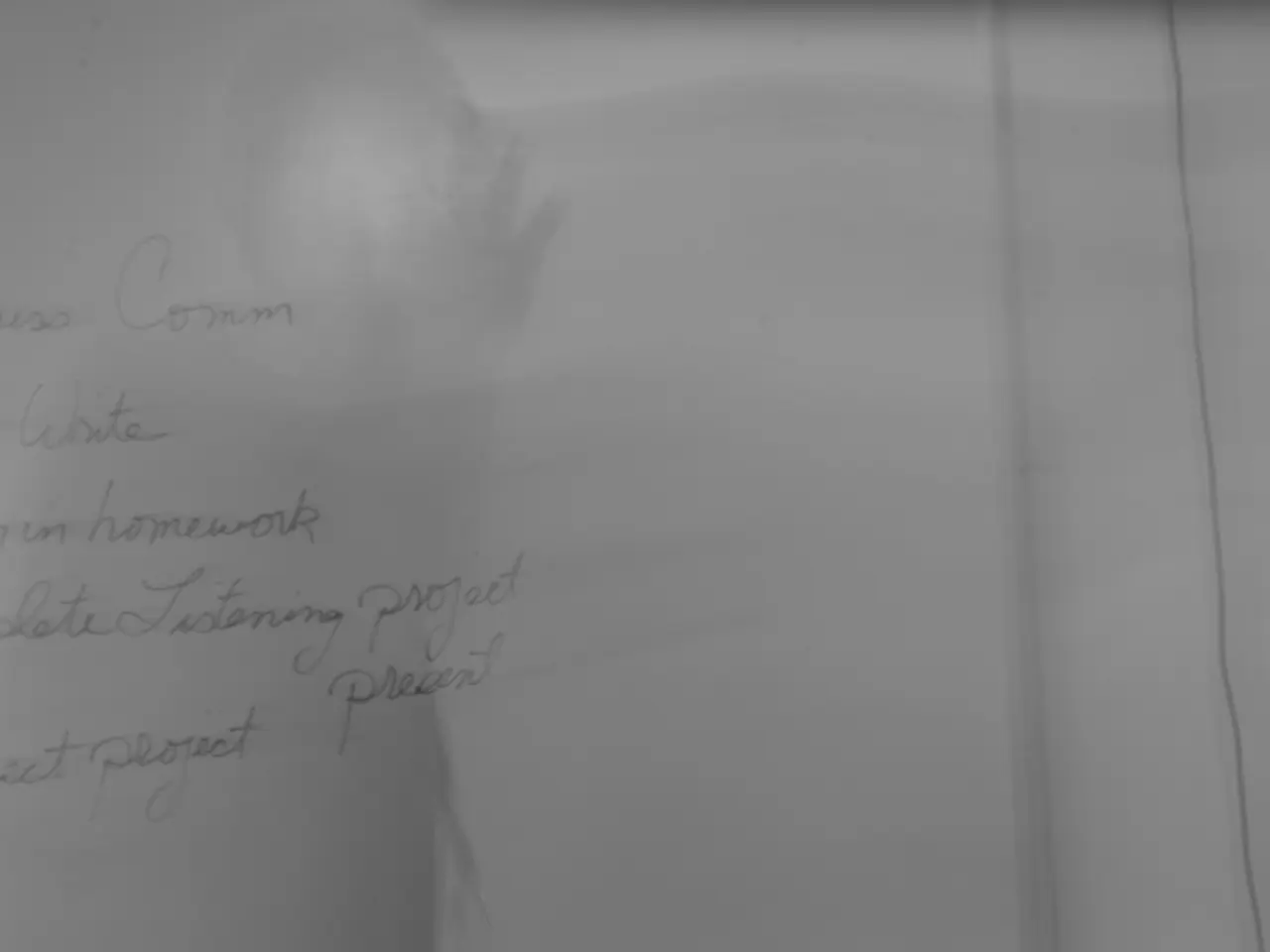Investor enthusiasm in the United States decreases temporarily due to tariff concerns
Headline: Institutional Investors Brace for Complex Economic Environment in 2025
Subhead: KPMG research highlights the impact of tariffs, geopolitical factors, and technology trends on investment strategies
The US economy is expected to continue its steady, moderate growth in 2025, according to a recent survey by the U.S. subsidiary of Big Four accounting firm KPMG. However, this growth environment is accompanied by a complex investment backdrop, driven by factors such as tariffs, geopolitical shifts, and market volatility.
Conor Moore, global and U.S. head of KPMG Private Enterprise, attributes the optimism of venture capital firms to significant LP funding and the potential for significant technology changes in the next 36 months. The survey included investors working in asset management (46%), venture capital (29%), and private equity (25%).
The survey results indicate that investor optimism for the longer term (beyond 18 months) has crept up between the two surveys. In January and February, 84% of investors were very optimistic or somewhat optimistic about growth prospects beyond 18 months. This number grew to 92% when investors were asked again in April. Among the investor groups, venture capital respondents had the highest level of optimism for economic growth beyond 18 months (95%).
In this steady but complex economic environment, diversification is critical. A balanced and diversified portfolio strategy tends to outperform more concentrated bets during 2025’s volatile conditions. International diversification gains appeal due to high valuations in US equities (S&P 500 trading at about 22x forward earnings) and comparatively lower valuations in international markets. Over 40% of S&P 500 earnings are from international operations, so direct investment abroad can offer better value and risk mitigation.
Tariffs and immigration reforms enacted in 2025 are reshaping economic drivers, affecting inflation, consumer spending, and investment patterns, especially in manufacturing sectors. Higher tariffs and immigration reforms create uncertainty and potential cost pressures for US manufacturing, potentially slowing growth in this area. Institutional investors are thus advised to maintain flexible allocations and seek opportunities outside sectors heavily exposed to tariff-induced risks.
The Trump administration's stated goal in increasing tariffs is to bring manufacturing back to the United States. However, geopolitical fragmentation and policy changes could foster selective opportunities in defense, infrastructure, and sectors benefiting from reshoring or automation, changing the manufacturing landscape. Thematic and active management strategies focusing on AI, automation, energy demand, and geopolitical shifts could provide compelling opportunities amidst structural changes in the economy.
In conclusion, institutional investors in the US in 2025 face a steady but complex economic environment influenced by tariffs and geopolitical factors. The suggested approach emphasizes diversification (including international exposure), liquidity, flexibility, and focus on thematic trends like AI and industrial shifts. Tariffs contribute uncertainty mainly to manufacturing, making selective, flexible positioning advisable rather than heavy concentration in exposed sectors. Nearly half (47%) of respondents anticipate an economic recession in the next 18 months. The research showed a decline in near-term optimism among 300 institutional investors based in the U.S. Four in 10 respondents expect the current economic uncertainty to last between six months to a year.
- Institutional investors in the US are bracing for a complex economic environment in 2025, with a focus on growth opportunities that involve significant capital, especially in sectors benefiting from reshoring or automation.
- The diversification of portfolios is critical in the complex economic environment of 2025, with a balanced and diversified portfolio strategy tending to outperform more concentrated bets during volatile market conditions.
- In this steady but complex economic environment, equity investments in international markets can offer better value and risk mitigation, given the comparatively lower valuations and high valuations in US equities.
- Tariffs and geopolitical factors, such as immigration reforms and geopolitical fragmentation, are reshaping economic drivers, affecting sectors like manufacturing, consumer spending, and investment patterns, necessitating selective and flexible allocation strategies.
- As the US economy remains in a steady but complex environment, research suggests that institutional investors should emphasize diversification, liquidity, flexibility, and focus on thematic trends like AI, industrial shifts, and geopolitical changes to navigate the uncertain economic landscape effectively.




